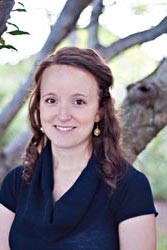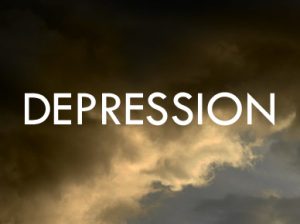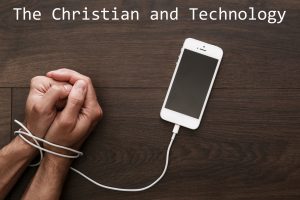HOLIDAY RELATIONAL STYLE
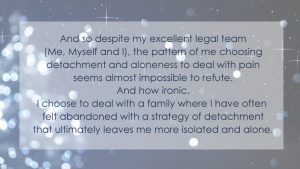
For at least the past ten years, going home for the holidays has become increasingly problematic. I’ve dealt with my ambivalence by using a relational strategy for the holidays that allows me to be present with my family, but not really. This strategy has not gone unnoticed by family. The result has been a growing pattern of disappointment expressed in pointed sarcasm and at times even tears.
My response has been what one might expect – I deflect the criticism through a well-structured narrative that sounds like a legal brief. For years, I defended myself from my family’s sarcasm and disappointment by saying to myself things like: “I work really hard!” “My work is emotionally exhausting in ways that others will never understand!” “They should be more thankful and see my behavior as a testament to how hard I work for them.”
That’s how my mental self-defense has consistently played out over the years… I go from self-congratulation to self-pity on a fairly routine basis and I’m always a bit slow to recognize either the hubris or the “feel sorry for me/don’t require of me” communicated in my self-defense.
I suppose this has something to do with 1) the fact that the tribunal takes place inside my head and 2) I have somehow managed to occupy three mutually exclusive roles. At the same time, I am the defendant, the counsel for the defendant, and the judge who decides the merits of my case. This has made for a pretty good team over the years… especially if you don’t want to face the truth about yourself and begin the journey of authentic repentance…
And so what is this holiday relational style that I’ve employed over the past decade at Thanksgiving and Christmas to be present with my family – but not really? It’s the act of detachment from my family disguised as a 3 hour nap in the middle of the afternoon while everyone is talking or going for walks at grandmas. There are multiple pictures of me napping during the holidays over the past decade. My mom even has some of those pictures of me sleeping framed and available for public viewing. The joke has become “Where will Chip nap this year? Which couch, which recliner?”
Again the sarcasm and the jokes roll right off my back… because my defense is solid and the judge seems to always be partial to my story.
But recently, I’ve been looking at my life and relationships through a different prism. Last month, I was helping my friend Jim on a tree job, and as we often do, we spent some of our down time that afternoon talking about life and the struggles we are facing. During that conversation, Jim, who has known me well for the past seven years challenged me to consider whether or not Detachment was the main strategy through which I tend to manage the pain and disappointment in my life?
Initially Jim’s question seemed like mere speculation, but the more I began to consider his thesis, the more it seemed to ring true. The evidence seemed to be mounting…
– It took 34 years before I ever had a meaningful conversation about my father’s abandonment of our family or about the impact his sexuality had upon me as a young boy. I choose early to not think about him much and always told myself “you don’t miss what you never had.” And that was that!
– In recent years, my mom is always hinting, sometimes asking, sometimes demanding more from me… more calls, more visits, more anything. And she is right; I can go weeks without calling.
– The pattern of sleeping alone upstairs in the playroom on the couch… my excuse is I fell asleep watching a movie which is often true but doesn’t explain why I am consistently choosing more and more to be alone and to sleep.
– The silence that has crept into my relationship with both of my adult sons over the past two years.
– And the Nar-Anon meetings I quit going to… I told myself it was taking too much of my time each week but I think the truth is those meetings forced me into the pain of loving an addict and I revolted… I let my wife go alone and I stayed home alone.
And so despite my excellent legal team (Me, Myself and I), the pattern of me choosing detachment and aloneness to deal with pain seems almost impossible to refute. And how ironic. I choose to deal with a family where I have often felt abandoned, with a strategy of detachment that ultimately leaves me more isolated and alone.
And so we leave tomorrow and I’m trying to figure out what all this means and what I should do about it… what would repentance look like? Because it’s not just the holidays and not just my family, but it’s how I do any relationship that has or looks like it might turn on me.
As I wrestle with this need to engage instead of detach, I keep thinking about Jesus towards the very end of his life. He is with His disciples and is obviously feeling the weight of His impending death. He retreats to the garden with His closest disciples to pray and there He opens His heart to these friends and shares how overwhelmed His heart is with sorrow and He invites them to keep watch and pray. Three times Jesus returns to these friends from praying and each time He finds them asleep.
Abandoned by his closest friends in his hour of deepest need and about to experience the ultimate abandonment on the cross as the Father turns his face away, Jesus chooses to embrace the pain and continue to love. He didn’t take nap… He didn’t stop talking… He didn’t silently detach… rather he kept showing up and continues to do so today.
I suppose that’s the answer to my question about what repentance looks like. And I’m asking for Jesus’ forgiveness. I’m asking for more of His faithfulness to keep showing up in my life and give to me the spiritual and relational resources to do likewise.
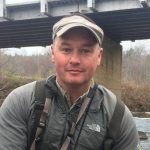 Chip Sneed is a native of North Carolina growing up mostly in the communities of Winston-Salem and Madison, North Carolina. He is married to Tina, and they have three children they love dearly: Chipper, Samuel, and Laura Elizabeth. Chip has always had a special love for the outdoors and sharing wild spaces with good friends. He graduated from Erskine Seminary in 1997 and was ordained as a teaching elder in the PCA in 1998. In 2002 Chip and his family moved to the community of Lake Norman to plant NorthCross Church.
Chip Sneed is a native of North Carolina growing up mostly in the communities of Winston-Salem and Madison, North Carolina. He is married to Tina, and they have three children they love dearly: Chipper, Samuel, and Laura Elizabeth. Chip has always had a special love for the outdoors and sharing wild spaces with good friends. He graduated from Erskine Seminary in 1997 and was ordained as a teaching elder in the PCA in 1998. In 2002 Chip and his family moved to the community of Lake Norman to plant NorthCross Church.


